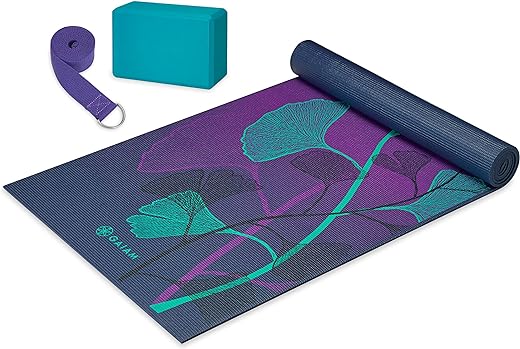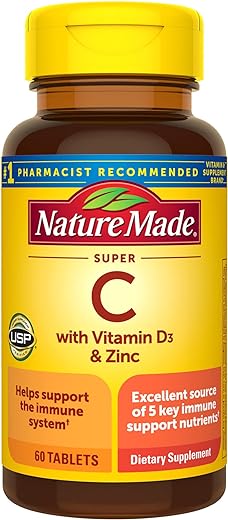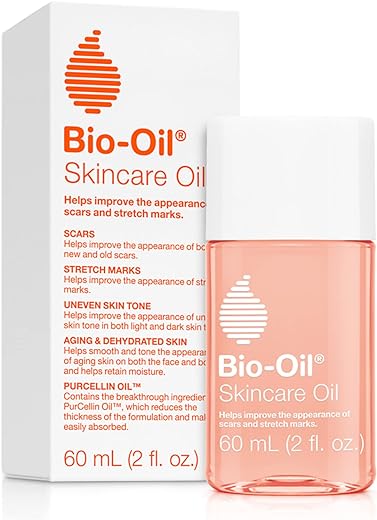The step-by-step guide “How to Implement Preventive Medicine Practices in Your Daily Life” outlines simple ways for individuals to incorporate preventive medicine solutions into their daily routines. It aims to promote overall well-being and minimize the risk of illnesses by offering practical tips and strategies for leading a healthier lifestyle. Preventive medicine focuses on addressing health concerns before they worsen, emphasizing the importance of proactively managing one’s health. By following the steps outlined in this guide, individuals can take control of their health and work towards achieving a long-lasting and sustainable state of wellness.
Achieve Optimal Health with Top Sellers
Understand the Importance of Preventive Medicine
Importance of Preventive Medicine: Benefits in Maintaining Overall Health and Well-being
- Learn About Preventive Medicine Benefits: Research different preventive measures such as vaccinations, screening tests, and lifestyle changes.
- Focus on Health Maintenance: Understand that simple habits like regular exercise, balanced diet, and annual check-ups can prevent diseases and promote well-being.
- Follow Expert Recommendations: Implement key prevention strategies like quitting smoking, getting adequate sleep, and managing stress to see persistent health benefits over time.
Examples:
Finding a balance in day-to-day life by exercising regularly can boost immune systems against viruses and chronic illnesses.Annual health screenings detect early signs of diseases, leading to timely treatment and improved long-term health.
Assess Your Current Health Status
- Speak: Schedule appointments with healthcare professionals such as doctors or nutritionists.
- Discuss: Engage in open conversations with them about your lifestyle, concerns, and any past medical history.
- Follow: Implement their recommendations, whether they are related to dietary changes, exercise routines, or regular check-ups. Your commitment can lead you towards a healthier future.
Develop a Healthy Lifestyle Plan
- Create a daily meal plan that focuses on whole foods rich in nutrients like fruits, vegetables, lean proteins, and whole grains.
- Incorporate regular physical activity into your routine, aiming for at least 30 minutes of exercise most days of the week.
- Practice stress management techniques such as deep breathing exercises, meditation, or yoga to help promote emotional well-being.
- Prioritize getting enough quality sleep each night to support overall health and ensure your body has time to rest and repair.
Schedule Regular Health Check-ups
- Make appointments regularly: Schedule routine screenings, vaccinations, and health assessments to monitor your well-being.
- Stay proactive: Take charge of your health by making appointments for regular check-ups and screenings without delay.
- Prioritize your health: Ensure you maintain routine health check-ups, vaccinations, and assessments to stay on top of your well-being.
Stay Informed About Preventive Measures
- Learn: Educate yourself on preventive healthcare practices by reading articles, watching informative videos, and speaking to healthcare professionals.
- Stay Up-to-Date: Keep yourself informed on the latest medical recommendations by following reputable health organizations, subscribing to health newsletters, and attending health seminars.
- Act: Implement these preventive measures in your daily routine to safeguard your health and well-being for a better quality of life.
Maintain a Balanced Diet
- Start your day by incorporating a colorful array of fruits into your breakfast options.
- Experiment with different vegetables in your salads or as side dishes to ensure a mix of nutrients.
- Opt for whole grains like quinoa or oats instead of refined grains for added fiber and essential minerals.
- Choose lean proteins such as chicken, fish, or beans to aid in muscle development and overall health.
Engage in Regular Physical Activity
- Incorporate 30 Minutes of Exercise: Get moving! Schedule at least 30 minutes of moderate physical activity into your daily routine. Choose activities like brisk walking, jogging, cycling, or swimming to boost cardiovascular health and improve your overall fitness level. Your heart will thank you for the workout while increasing your overall well-being.
Practice Stress Management Techniques
Perform relaxation methods such as meditation, deep breathing, or yoga to alleviate stress and enhance mental well-being. For meditation, find a quiet spot, sit comfortably, close your eyes, take slow, deep breaths, and focus on the present moment. If practicing deep breathing, sit or lie down, place one hand on your belly, inhale slowly through your nose filling your lungs, exhale slowly through your mouth, and repeat several times. Engage in yoga by following instructional videos, starting with simple poses, focusing on your breath, and gradually adding more challenging postures at your own pace.
Get Sufficient Sleep
- Ensure you maintain a consistent sleep routine by going to bed and waking up at the same time every day.
- Create a conducive sleep environment by keeping your bedroom cool, dark, and free from distractions such as electronic devices.
- Avoid heavy meals and caffeine close to bedtime to promote better sleep quality.
- Practice relaxation techniques like deep breathing or meditation to help your mind and body unwind before bed.
Stay Consistent and Patient
- Commit to your preventive care routine for long-term benefits. Continuously follow through on healthy habits, such as daily exercise, balanced nutrition, and regular check-ups with your healthcare provider.
- Understand that visible progress may take time. For example, consistent exercise routines over a few months can lead to improved physical fitness levels and overall well-being.
Embrace a Healthier Future Today
In conclusion, integrating preventive medicine practices into your daily routine is crucial for promoting overall well-being and longevity. By emphasizing healthy lifestyle choices, regular screenings, and early intervention, individuals can actively protect their health and reduce the risk of developing chronic conditions. Implementing these practices not only ensures a higher quality of life but also fosters a proactive approach to healthcare. Remember, prevention is key to a healthier future.
Essential Equipment Needed
Effective Health Practices
Optimizing Your Health with Preventive Medicine Techniques
- Get regular check-ups from a primary care physician
- Follow a healthy diet and exercise regularly
- Stay up-to-date on vaccinations and screenings
- Maintain a healthy weight and avoid harmful substances like tobacco
- Manage stress and seek mental health support when needed
Preventive Medicine FAQs
What are some common preventive medicine strategies that individuals can adopt in their daily lives?
There are several common preventive medicine strategies that individuals can adopt in their daily lives to improve their overall health and well-being. These include:
- Maintaining a healthy diet: Eating a balanced diet rich in fruits, vegetables, whole grains, and lean proteins can prevent chronic diseases such as heart disease, diabetes, and obesity.
- Staying physically active: Regular exercise can improve cardiovascular health, strengthen muscles, and boost overall energy levels.
- Getting enough sleep: Adequate sleep is essential for overall health and can help prevent a wide range of health issues, including compromised immune function and psychological disorders.
- Avoiding harmful substances: Limiting or avoiding tobacco, excessive alcohol consumption, and illicit drugs can reduce the risk of developing various health conditions.
- Regular health screenings: Regular check-ups and screenings can help detect potential health issues early on and allow for timely interventions.
Are there any specific guidelines or frameworks that healthcare professionals should follow when implementing preventive medicine solutions?
Yes, there are specific guidelines and frameworks that healthcare professionals should follow when implementing preventive medicine solutions. The Centers for Disease Control and Prevention (CDC) and the World Health Organization (WHO) have developed evidence-based recommendations and guidelines for preventive healthcare practices. Healthcare professionals should adhere to these guidelines to ensure the delivery of effective preventive care and maximize positive health outcomes for patients. By following established frameworks and guidelines, healthcare professionals can effectively tailor preventive medicine solutions to individual patient needs, promote health and well-being, and prevent the onset of diseases.
How can healthcare providers integrate preventive medicine solutions into their treatment plans for patients?
Healthcare providers can integrate preventive medicine solutions into their treatment plans for patients by incorporating measures aimed at reducing the risk and preventing the onset of diseases. This can include promoting healthy lifestyle choices such as nutrition, exercise, stress management, and regular screenings. They can also offer counseling on smoking cessation, alcohol moderation, and vaccinations to keep patients healthy. By adopting a proactive approach to healthcare, providers can help patients maintain overall well-being and prevent potential health issues from arising.
How can community partnerships contribute to the success of preventive medicine programs?
Community partnerships can significantly enhance the success of preventive medicine programs by leveraging resources, expertise, and networks at a local level. When organizations, healthcare providers, community groups, and government agencies collaborate, they can reach a wider audience and have a more holistic approach to health promotion and disease prevention.
These partnerships allow for more targeted and culturally sensitive interventions, as they are often tailored to the specific needs of the community. By working together, partners can exchange knowledge, share best practices, and pool resources to increase the impact of preventive health initiatives.
Moreover, community partnerships help improve community engagement and empower individuals to take control of their health by providing access to education, screenings, vaccinations, and other preventive services. By fostering a collaborative environment, preventive medicine programs can better address social determinants of health and promote long-term behavior change, ultimately leading to improved health outcomes for the community as a whole.
Are there specific preventive medicine techniques that are recommended for different age groups?
Yes, there are specific preventive medicine techniques recommended for different age groups. Healthcare providers typically advise a range of preventive measures such as vaccinations, screenings for specific diseases, healthy lifestyle recommendations, and regular check-ups tailored to age-specific needs. Taking proactive steps to prevent illness and maintain overall well-being is crucial at any age. Schedule regular appointments with your healthcare provider to discuss appropriate preventive care based on your age and individual health status.
What are the benefits of incorporating preventive medicine solutions into healthcare practices?
Incorporating preventive medicine solutions into healthcare practices offers a range of benefits that can greatly improve patient outcomes and overall wellbeing. Some of the key advantages include:
- Early detection and prevention of diseases: Preventive medicine techniques help in identifying risk factors early on, allowing healthcare providers to intervene and prevent the development of illnesses before they escalate.
- Cost-effectiveness: By focusing on preventive care, healthcare practices can limit the need for expensive treatments and procedures associated with advanced stages of diseases, leading to cost savings for both patients and healthcare systems.
- Improved overall health: Encouraging prevention through measures such as vaccinations, screenings, and lifestyle modifications nurtures healthier communities, keeping individuals in better health and reducing the burden of chronic conditions.
- Enhanced patient engagement: Proactive health management fosters a stronger relationship between healthcare providers and patients, empowering individuals to take control of their health and participate in decisions about their care.
- Population health benefits: Community-wide adoption of preventive medicine practices can have a positive impact on public health, reducing the prevalence of diseases and ultimately leading to healthier populations.


















Developing a healthy lifestyle plan is key, but it can be challenging to stick to. I found that setting small, achievable goals helped me stay motivated and on track.
Author’s Response: Setting achievable goals is a great strategy to maintain consistency in implementing preventive practices.
Scheduling regular health check-ups can sometimes be overlooked, but it’s essential for early detection of any health issues. How often should one ideally get a check-up?
Assessing my health status led me to discover areas needing improvement. It’s eye-opening to see where changes can be made for a healthier lifestyle.
Understanding preventive medicine’s value is crucial in making informed health decisions. By investing in preventive practices, we can potentially reduce healthcare costs and improve overall well-being.
What are some advanced tips for individuals looking to take their preventive medicine practices to the next level and optimize their health?
Practicing stress management techniques is vital for overall health. I find mindfulness meditation to be particularly helpful in reducing stress levels.
Author’s Response: Mindfulness meditation is a great way to manage stress. Incorporating relaxation techniques into your daily routine can have significant benefits.
Staying informed about preventive measures can be overwhelming with the amount of information available. Any tips on reliable sources for health information?
Author’s Response: Trusted sources like government health websites, reputable medical institutions, and healthcare professionals can provide reliable information on preventive measures.
Engaging in regular physical activity is crucial, but finding the motivation to exercise regularly can be tough. How do you stay motivated to workout consistently?
Maintaining a balanced diet has been challenging due to busy schedules. Any recommendations for quick and healthy meal options that fit into a hectic day?
Author’s Response: Meal prepping and having easy-to-make recipes on hand can help ensure you have nutritious meals even on busy days.